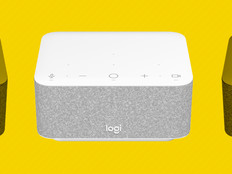Bluetooth Beacons Could Improve Student Experience on Higher Ed Campuses
Beacons are typically used for proximity marketing, but they also have a purpose in higher education: improving the student experience.
Beacons emit short-range, Bluetooth low energy signals to mobile apps that prompt them to deliver custom, location-based content. The technology offers a range of uses for colleges and universities, including wayfinding around campus, tracking classroom attendance, granting access to buildings, optimizing campus design and notifying administrators of students’ whereabouts during emergencies.
Perhaps most interesting to IT administrators, beacon technology can provide mobile device management functions that restrict Wi-Fi access to all but the course content when a professor enters the classroom.
Creating Hospitable Campuses Thanks to Tech
Grove City College in Pennsylvania plans to take advantage of Bluetooth beacons built into its Aruba 802.3ac wireless access points.
“We’ll be using the Meridian Mobile App Platform to build mobile apps that can be used across the campus,” says CIO Vince DiStasi. “For example, prospective students will be able to take a self-guided tour, and students will be able to look up the availability of reference materials in the library from their mobile devices.”
Farther west, the University of Oklahoma built the NavApp mobile app to help students navigate its huge library, which boasts nearly 500,000 square feet and more than 5 million volumes. NavApp guides users to resources, study spaces, technology and services in the library, with accuracy to within a single meter.
Salt Lake Community College in Utah also uses beacons to disseminate on-the-spot information to students, such as shuttle stop locations and services available in the health center.
Researchers Kieran McDonald and Ian Glover from Sheffield Hallam University in England, who wrote about beacons in the journal Research in Learning Technology, are bullish about their future: “The potential benefits of beacons suggest that they are a powerful, yet simple, unobtrusive and flexible technology that can be applied to a wide variety of situations within higher education.”








